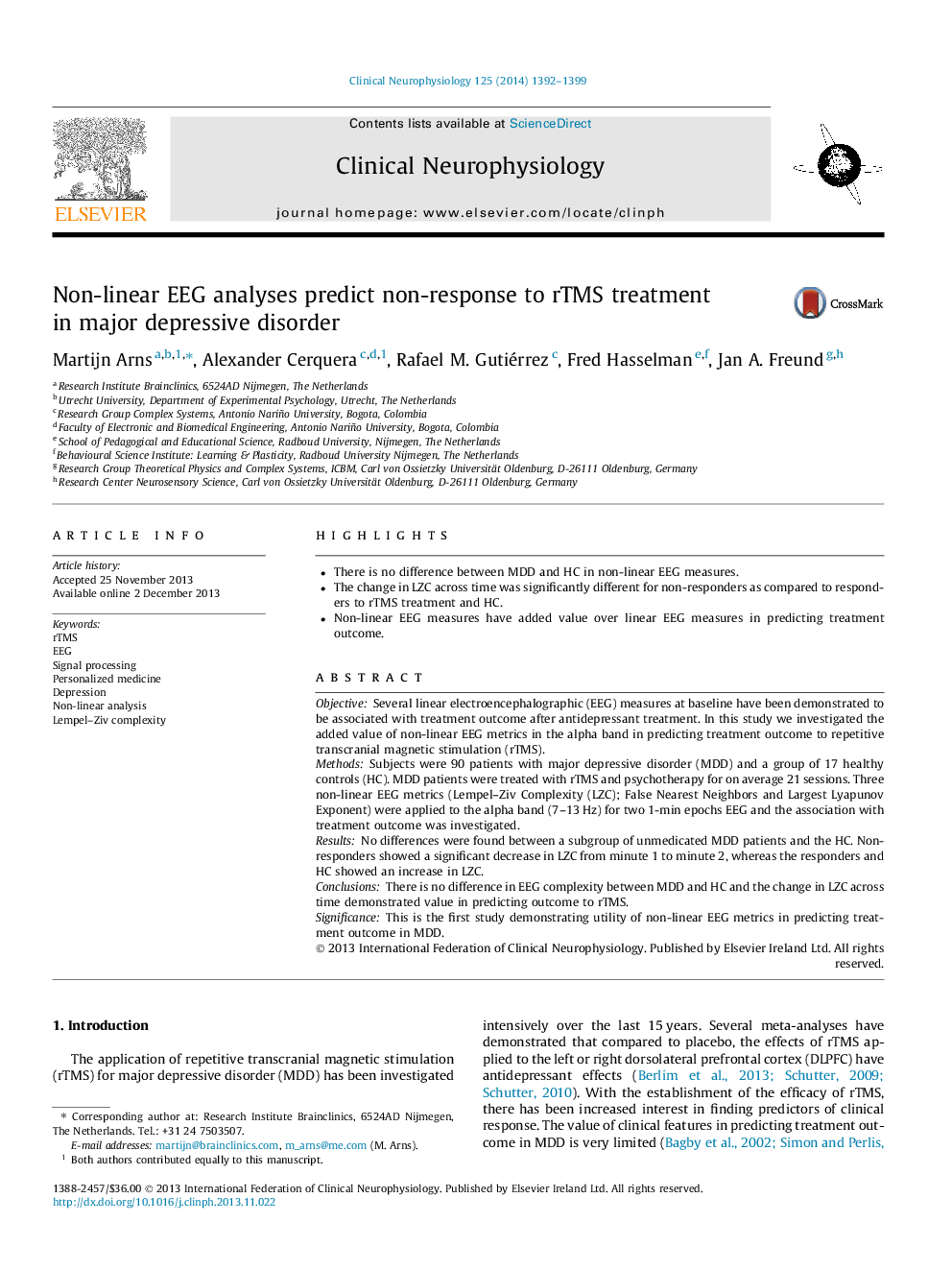| Article ID | Journal | Published Year | Pages | File Type |
|---|---|---|---|---|
| 3043911 | Clinical Neurophysiology | 2014 | 8 Pages |
•There is no difference between MDD and HC in non-linear EEG measures.•The change in LZC across time was significantly different for non-responders as compared to responders to rTMS treatment and HC.•Non-linear EEG measures have added value over linear EEG measures in predicting treatment outcome.
ObjectiveSeveral linear electroencephalographic (EEG) measures at baseline have been demonstrated to be associated with treatment outcome after antidepressant treatment. In this study we investigated the added value of non-linear EEG metrics in the alpha band in predicting treatment outcome to repetitive transcranial magnetic stimulation (rTMS).MethodsSubjects were 90 patients with major depressive disorder (MDD) and a group of 17 healthy controls (HC). MDD patients were treated with rTMS and psychotherapy for on average 21 sessions. Three non-linear EEG metrics (Lempel–Ziv Complexity (LZC); False Nearest Neighbors and Largest Lyapunov Exponent) were applied to the alpha band (7–13 Hz) for two 1-min epochs EEG and the association with treatment outcome was investigated.ResultsNo differences were found between a subgroup of unmedicated MDD patients and the HC. Non-responders showed a significant decrease in LZC from minute 1 to minute 2, whereas the responders and HC showed an increase in LZC.ConclusionsThere is no difference in EEG complexity between MDD and HC and the change in LZC across time demonstrated value in predicting outcome to rTMS.SignificanceThis is the first study demonstrating utility of non-linear EEG metrics in predicting treatment outcome in MDD.
